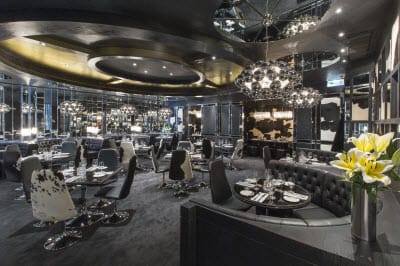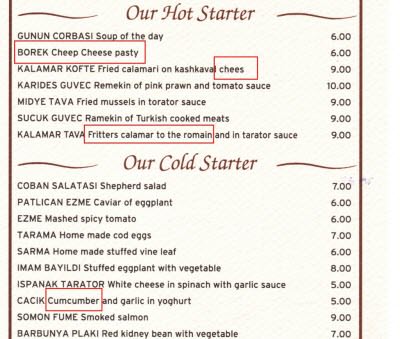Restaurant managers and staff alike share a common goal which is to climb the professional ranks in the food industry. Most people enter the realm of the restaurant business with hopes for opportunity and success in their endeavors. And if you are especially beginning to embark on your own journey of running your own business, the last thing you would anticipate is failure. But every now and then, we become blindsided by our delusions of grandeur and ignore the risk factors which can cost us time, money, and our business.
Common Mistakes Restaurant Business Owners Make in 2024

Ignorant of the Challenges in the Food Industry

The restaurant industry is a high-risk business proposition. With heavy competition and nailing every detail to perfection, ensuring the success especially in restaurant startups seems like a big gamble. New restaurant managers and owners are often very eager to please their customers and solidify their reputations as providing the highest quality food and best service. But unfortunately, all that enthusiasm can lead to several missteps. As a first time manager and/or owner, you need to be on guard against these common restaurant mistakes. If you are just getting yourself primed for a career in the food service industry, you need to be prepared to make very important decisions and learn how to make a business plan for your restaurant.
Expecting Instant Results

Assuming that you will make a profit immediately upon the grand opening of your restaurant is an illusion as well as it is a mistake you can make which will only be met with disappointment. The cold reality dictates that it takes at least up to two to three months to build up sales volumes. Ask any veteran restaurateur and he/she will tell you to have an allowance as an insurance to cover your first annual quarter. During the first quarter, your wait and kitchen staff is just starting to acclimate to the environment, regulations, and their roles. They are learning about teamwork, handling customers, and to how to help you make adjustments.The menu may need some tweaking. Additionally, it can take you weeks to get into the rhythm with your suppliers. If you don’t consider or cover these operating costs for the first few months into your restaurant business, chances of your new restaurant making it into the second quarter may be slim to none.
Not Understanding your Role as a Leader

A good restaurant owner/manager is someone who understands his/her role and is willing to assume the responsibilities that one would expect from someone in that position. Sometimes new owners may lack the maturity and understanding of what restaurant management entails and act like one of the staff members instead. It’s nice to assist your staff in serving tables, cooking food, and cleaning the facility but who will oversee the operations if you are too busy helping them? Your priority as an owner or a manager of a restaurant startup is to make your business run smoothly to ensure customer satisfaction and generate revenue. It’s crucial for you to play an active role in monitoring the cash flow, analyzing the P&L, creating marketing campaigns, and making strategic decisions that will determine the success of your business.
Uniting your staff with a common goal is a stepping stone to the success of your undertakings. Having a clear vision and purpose will inspire everyone to work together as a team and dedicate their efforts into helping you achieve your goals. These are very important tips for restaurant owners to keep in mind. By following through with them and taking full control, you will create a smooth and pleasant environment along with excellent working conditions that will foster a prosperous future for your restaurant.
Being Close-Minded About Restaurant Concepts

You may have found a definition for your concept and have a vision for how you want it to look like. From the restaurant layout to the commercial furniture to fashion your décor, you can imagine what your restaurant will look like. But sometimes those imaginations can’t be fulfilled due to space configurations or other unexpected reasons. Unless you have expertise in the field of interior design, recruiting professional designers, architects, engineers and contractors to facilitate with your layout plans may be necessary. Share your ideas with them, tell them what you want, and receive their feedback to any foreseen problems. You can work together to create alternative plans for your concept. Keeping an open mind to new ideas may in fact be better than your original plans you have envisioned in the long run.
Solely Focusing on Your Interests
While it’s important for you to be proud of your restaurant business, driving many miles to give customers the dining experience they would expect in any dining establishment is probably one of the best things you can do. Sometimes, what you personally like is not relevant as you are not a paying customer. Unfortunately, many restaurant service issues arise and surface because owners and managers concentrate more on what they like to place on the menu rather than focusing on the market which can result poor customer service. Visiting other restaurants in the area and analyzing their menu will give you a sense of what the market is like in terms of price, food, and niche. You may even want to take a step further and speak to locals about their dining preferences, expectations and perhaps about the pet peeves they have at restaurants. When you are trying to notify locals about your establishment, they need to know what type of restaurant you own, the food you serve, and why they should dine at your restaurant.
Trying too Hard to Please and Overlooking Menu Design Errors

When was the last time you dined out and came across items on a menu that didn’t belong there? Were you presented with too many menus? Did you notice spelling mistakes or were you confused by the wording? Was the font difficult to read? Have you been overwhelmed by the ample of options that restaurant offered or disappointed by the lack thereof? Or were the items very similar to what competing restaurants serve? If you have seen this before, you should avoid making this mistake in order to please your customers. Sometimes new owners and managers put more effort into appealing to their customers with quality food and ambience than merchandising their items.
The menu design should be clean, legible, original, and congruent your brand. All items should be priced. The dishes you serve should be your own and not your competitors. Put your own twist to them if you need to. Whether you serve alcoholic beverages or not, having a specialty drink menus can work in your favor by tying trends and consumer habits together, boosting check averages, and increasing guest frequency at your restaurant. The menu is the most important sales tool because people who visit your restaurant use it. Because it is by far the most important piece of marketing collateral, your menu should be professionally written and designed. A menu can have a different appeal and send a different message depending on how it’s worded. The attention of details you put into your niche, marketing plan, and customer service should also be put into your menu. It may be worth your while to recruit a copywriter with the assistance of your chef as you may witness a spike of sales from a well written and designed menu.






























































